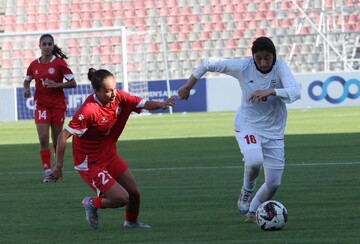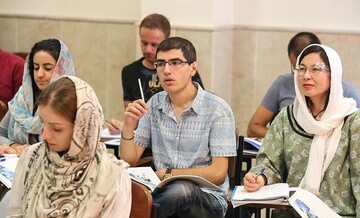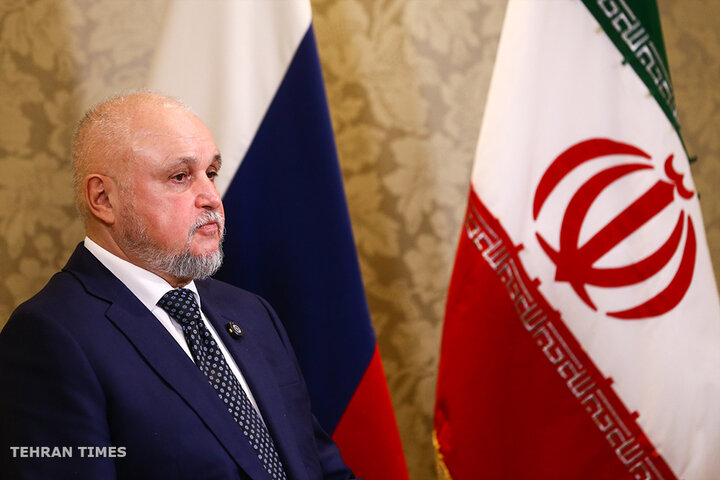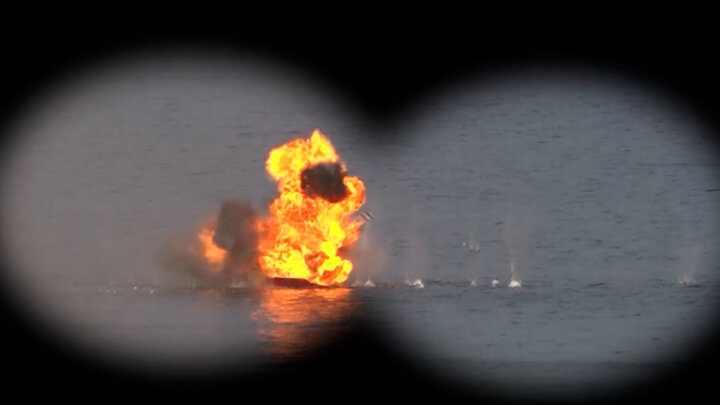-
 2026-03-04 21:48
2026-03-04 21:48
By Saleh Abidi Maleki
Why Trump’s proposed ship escorts will likely never happen
U.S. President Donald Trump had been talking up the two aircraft carriers he had sent to Iran’s vicinity for days. Back in early February, he claimed he had sent “big, beautiful” equipment to the Persian Gulf specifically to intimidate Tehran and force it to abandon its nuclear and missile programs out of fear of imminent attacks during the new negotiations the two countries had started.
-

By Ranjan Solomon
Iran pounds Israel, US seeks to save face
Iran holds the military edge
GOA, India - Trump and Netanyahu must have dreamed wild dreams of an across-the-board victory, almost-instant victory after launching the war against Iran. Alas, the war surges, and Israel is under attack with citizens pleading for a stoppage. Fighter jets in U.S. bases in Persian Gulf states have fled in fear.
-

By Batool Subeiti
A war built on miscalculation: Why Iran will emerge stronger
LONDON – The U.S. and the Israeli occupation entity have become entangled in a quagmire. The decision for war with Iran is based on miscalculation. Attacking Iran and escalating matters to the level of war, to the point of no return, could lead to enormous consequences for the new global order that Trump seeks to establish.
-

Closure of Hormuz Strait not a choice, but a necessity
Trump must face the consequences of his illegal war on Iran
TEHRAN - When a country sees that it is being deceived despite showing goodwill and practicing patience for long years in the face of injustices and deceptions, it may resort to acts that do not seem legal at first glance. These things happen when a country is left with no other alternative.
-

By Xavier Villar
The Strait of Hormuz and Iranian leverage on energy prices
MADRID – The United States and Israel’s war with Iran has extended into the Strait of Hormuz, transforming a regional military confrontation into a systemic economic rupture.
-

Iran’s regional war strategy and the closure of the Strait of Hormuz
TEHRAN – Iran’s decision to close the Strait of Hormuz represents the most consequential strategic shift in the modern history of West Asia, not as an impulsive reaction to recent attacks but as the deliberate activation of a doctrine Iran has articulated for decades: that any assault on its sovereignty—especially one launched from the soil of neighboring states—will transform the entire region into a unified theater of conflict.
Politics
-

Israel–US war on Iran and position of Persian Gulf states
TEHRAN- At dawn on Saturday, February 28, 2026, Israel and the United States officially and jointly attacked Iran and, at the very outset, assassinated the Leader of the Islamic Republic. This occurred while negotiations between Iran and the United States were ongoing.
-

Iranian negotiator says US treated talks like a 'real estate transaction'
TEHRAN - Iran's chief nuclear negotiator, Foreign Minister Abbas Araghchi, seems to have affirmed long-standing criticism regarding the Trump administration's negotiating team, stating the group did not truly understand the complex diplomatic process they were involved in.
-

Growing anger in US over Trump's war on Iran
TEHRAN – Anger and anxiety are growing among politicians and the public in the United States over President Donald Trump's decision to attack Iran for the second time in eight months, while the two countries were in the midst of ongoing nuclear negotiations.
Sports
-

Iran likely to withdraw from 2026 FIFA World Cup
TEHRAN – FIFA will "monitor developments" in Iran following the outbreak of military action by the United States -- the co-hosts of this summer's men's World Cup -- against Iran, who have qualified for the tournament and is due to play their group games in the U.S.
-

Iran, South Korea to lock horns at AFC Women’s Asian Cup 2026
TEHRAN - The respective head coaches of Korea Republic and Iran expressed confidence in their tournament preparations ahead of their opening AFC Women’s Asian Cup Australia 2026 clash at the Gold Coast Stadium on Monday, which will represent the first-ever meeting between the pair.
-

Iranian women carry the hopes of a generation
TEHRAN - As the 2026 AFC Women’s Asian Cup unfolds in Australia from March 1–21, few stories are as inspiring and hard-earned as that of Iran’s women’s national football team. For only the second time in its history, Iran have qualified for this premier continental tournament, a milestone that reflects both sporting progress and social resilience.
Culture
-

Young, veteran artists creating artwork about “Martyr Leader”
TEHRAN – A three-day visual art workshop titled “Martyr Leader” was launched on Tuesday at the Art Bureau in Tehran to commemorate the Leader of the Islamic Revolution, Ayatollah Seyyed Ali Khamenei, who was martyred during U.S.-Israeli airstrikes that targeted his office in central Tehran on Saturday.
-

Brazilian cartoonist Carlos Latuff reacts to Supreme Leader's martyrdom in new work
TEHRAN – Brazilian political cartoonist Carlos Latuff has created a work regarding the Leader of the Islamic Revolution, Ayatollah Seyyed Ali Khamenei, who was martyred during U.S.-Israeli airstrikes that targeted his office in central Tehran on Saturday.
-

Karen Homayounfar composes war music for “True Promise 4”
TEHRAN- Renowned composer Karen Homayounfar simultaneously with the start of Operation “True Promise 4”, has created three military march pieces.
Economy
-

Details of economy ministry’s actions during war announced
TEHRAN- The Ministry of Economic Affairs and Finance announced its key measures and activities in the areas of banks, insurance, the stock exchange, and customs in order to provide more and better services to the dear people.
-

Transport minister visits Tehran railway station, announces decisions to facilitate travel
TEHRAN- The Minister of Transport and Urban Development, by visiting Tehran railway station, speaking with passengers, and being present at the train ticket sales unit and inside the carriages boarding passengers, made and issued the necessary decisions to facilitate people's travel.
-

Customs clearance of goods facilitated nationwide
TEHRAN- Following follow-ups by the Iran Chamber of Commerce, Industries, Mines and Agriculture to facilitate the clearance of goods from the country's customs, importers can now clear their goods without a SATA code and solely based on a commitment not to receive foreign currency.
Society
-

Foreign university students provided with safe, secure accommodation
TEHRAN – Foreign university students residing in the country have been provided with safe and secure accommodation, an official with the Organization for Foreign University Students has said.
-

Over 1,000 people martyred by Wednesday
TEHRAN - The Foundation for Martyrs and Veterans announced on Wednesday that 1,045 people have been so far killed during the U.S.-Israeli terrorist attacks that started on Saturday.
-

Over 1,000 people martyred by Wednesday
TEHRAN - The Foundation for Martyrs and Veterans announced on Wednesday that 1,045 people have been so far killed during the U.S.-Israeli terrorist attacks that started on Saturday.
Tourism
-

UNESCO warns of damage to World Heritage following Tehran attack
TEHRAN – The Nations Educational, Scientific and Cultural Organization has expressed concern over the protection of World Heritage sites following escalating violence in West Asia, citing damage to the centuries –old Golestan Palace in downtown Tehran.
-

Expert details damage to UNESCO-listed Golestan Palace following airstrike
TEHRAN – Iranian cultural heritage expert Eskandar Mokhtari-Taleqani has elaborated damage to the Golestan Palace, a UNESCO World Heritage site in Tehran, following recent U.S. and Israeli airstrikes on March 1.
-

Natanz focuses on preserving historical texture before Nowruz travels
TEHRAN – Officials in Natanz have emphasized the importance of maintaining historical integrity of the ancient city as preparations are underway to accommodate increased tourism during the upcoming Nowruz holiday, which officially starts on March 21.
International
-

Ayatollah Khamenei and Sayyed Hassan Nasrallah: A shared wisdom and covenant for resistance
SOUTH LEBANON — The visionary relationship that united the martyred leaders Sayyed Hassan Nasrallah and Sayyed Ali Khamenei was not merely organizational or political; it was a profound bond of vision, faith, and shared historical purpose.
-

Global figures denounce U.S.–Israeli killing of Ayatollah Khamenei
TEHRAN - Many world and regional leaders, political figures, and activists have strongly condemned the joint U.S.–Israeli strikes that led to the martyrdom of the Leader of the Islamic Revolution, Ayatollah Seyyed Ali Khamenei. They denounced Washington and Tel Aviv for a blatant act of aggression that flagrantly violated international norms and pushed the region toward a dangerous confrontation.
-

Worldwide protests condemn U.S. and Israel after martyrdom of Ayatollah Khamenei
TEHRAN - Global resentment against the United States and Israel is reaching a boiling point following the martyrdom of the Leader of the Islamic Revolution, Ayatollah Seyyed Ali Khamenei, in joint U.S. and Israeli airstrikes. From the streets to social media, raw grief has erupted into searing anger toward Washington and Tel Aviv, with many condemning the strikes on his office in central Tehran on Saturday as an unforgivable act and warning of lasting consequences.
Most Viewed
-
Why Trump’s proposed ship escorts will likely never happen
-
Why Iran is fighting like never before
-
Closure of Hormuz Strait not a choice, but a necessity
-
Iran pounds Israel, US seeks to save face
-
40 US Marines killed in Dubai
-
Iran’s regional war strategy and the closure of the Strait of Hormuz
-
Iran at war 2
-
Iran at war 3
-
Israel–US war on Iran and position of Persian Gulf states
-
The Strait of Hormuz and Iranian leverage on energy prices
-
From the 12-Day war to now: A dramatically different Iranian response
-
Iran at war 1
-
Iranian negotiator says US treated talks like a 'real estate transaction'
-
A war built on miscalculation: Why Iran will emerge stronger
-
Geopolitics of Hormuz: The energy artery of the world












